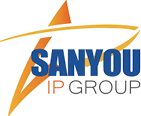As infringement suits and administrative procedures involving patents, trademarks and other such intellectual property involve a large quantity of specialized knowledge, legal knowledge and material economic interests, parties will usually retain professionals such as lawyers and patent agents to participate in litigation on their behalf.
The preparation of compliant appointment procedure documents is a basic requirement in a legal action. Where a party is a foreign national or a foreign enterprise or organization, the preparation of the appointment paperwork will entail certain difficulties because of the large differences in countries around the world. Below the author explore certain matters that require special attention.

Partner
Sanyou Intellectual Property Agency
If a party is a foreign natural person, he or she is required to prepare a power of attorney and a photocopy of his or her identity document. Notarization and certification procedures need to be carried out for the power of attorney and the photocopy of the party’s identity document. In other words, the above-mentioned documents need to be notarized at a foreign notary office and certified by the Chinese embassy or consulate in the country in question. It should be noted that, during trial of the case, the court will be required to check the party’s home address. If the party’s address does not appear on his or her passport, he or she is additionally required to prepare another document that can substantiate his or her address, and have the same notarized and certified.
If a party is a foreign enterprise or organization without a domicile in China, it is required to submit a power of attorney, supporting documentation showing that it was lawfully established (corresponding to a business licence or organizational code certificate in China) and the Certificate of Identity of Legal Representative. All of these documents need to be notarized and certified.
If the supporting documentation showing that the foreign enterprise or organization is lawfully established is the original, issued by the government or a court of the country in question – e.g., the original of the Certificate of All Present Matters or the Certificate of All Historical Matters issued by the Japanese government – notarization can be obviated and only certification is required.
Usually, the name and title of the legal representative should be recorded on the supporting documentation of lawful establishment. Where possible, the power of attorney should be signed by the legal representative. If the signatory of the power of attorney is not the legal representative, the signatory’s signing authority should be substantiated based on the supporting documentation of lawful establishment, and pursuant to the law of the country in question. Alternatively, the company may independently issue an authorization document evidencing that the signatory has signing authority (such a document also requires notarization and certification). Furthermore, the supporting documentation of lawful establishment should record the party’s address.
For countries that have a seal system, such as Japan and South Korea, the power of attorney must bear the official seal, as such a document only signed by the legal representative is not legally valid. Some Japanese and South Korean enterprises have relatively strict restrictions on the use of their official seals, with a very complex internal procedure for applying for the affixation of the official seal.
Accordingly, the lawyer or patent agent that has been retained must verify to see whether the official seal affixed by the principal is the company’s official seal. For example, if a power of attorney bears the “Seal of the President of XXX Co Ltd”, this official seal is the president’s personal seal, or the legal representative’s seal, and cannot substitute for the official seal, and the power of attorney needs to be sealed anew with the company’s official seal.
As another example, if the seal on the power of attorney says “Representative of XXX Co Ltd”, such a seal is difficult to confirm as the official seal of the company, and confirmation needs to be sought from the party. If such seal is genuinely the official seal of the company, the best approach is to additionally provide the registration document for such a seal, have the document notarized and certified, and keep it on hand for examination by the court.
As the above-mentioned documents are usually in a foreign language, they need to be translated into Chinese by a court-recognized translation firm before submission to the court. As there may be several ways to translate personal and company names, care needs to be taken to ensure that the translation by the translation company is consistent with the other litigation documents.
For example, “LG Chemical Limited” and “LG Chemical Ltd” are really the same company. When it institutes an infringement suit as the patent holder, if the patent holder named on the patent documents is “LG Chemical Ltd” and the name appears as “LG Chemical Limited” on the Chinese translation of the power of attorney, the appointment procedure will not be legally valid. In such a case, the translation company will need to be notified to correct the translation and issue a new one.
If the appointed party is a patent agent, he or she may, pursuant to the Civil Procedure Law and the Administrative Procedure Law, participate in the legal action in the capacity of citizen recommended by a relevant association. The All-China Patent Attorneys Association revises and publishes its updated list of agents each quarter. In the course of a legal action, such a list should be submitted as proof that the patent agent in question has the qualifications to participate in the legal action.
Furthermore, the official letter issued by the entity of which the appointed lawyer or patent agent is a part should also be submitted in the course of the legal action. A lawyer is additionally required to submit a photocopy of his or her practice licence. A patent agent is additionally required to submit a photocopy of his or her practice licence or patent agent practice recordal certificate as well as a photocopy of his or her ID card.
In practice, there may be minor differences in the requirements in respect of the appointment procedure documents and the review criteria of courts in different regions. Due to the difficulties in contacting foreign parties, and the relatively large amount of time required for the notarization and certification procedures, best efforts should be made to prepare complete and proper procedure documents.
Pang Dongcheng is a partner and patent agent, and head of the foreign-related chemistry department, with Sanyou Intellectual Property Agency.

Sanyou Intellectual Property Agency
16/F, Block A, Corporate Square
No.35 Jinrong Street, Beijing 100033, China
Tel: +86 10 8809 1921 / 8809 1922
Fax: +86 10 8809 1920
E-mail:
sanyou@sanyouip.com
www.sanyouip.com





















